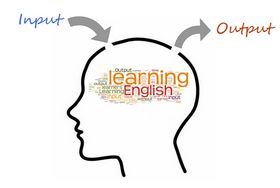Machine learning is the latest fad in science. It is roughly speaking the “automated identification of patterns in data.”(MIT) And is indicative of the movement toward big data in many science fields. When looking at the microscopic levels that we do we can get overwhelmed with tremendous data sets and finding subtlety can get quite difficult. The hope is that machines can help guide us to find patterns in data. It can be used to quickly find outliers in a large set of data, or even find mathematical models for data sets. Machine learning is not the same as artificial intelligence which is important to realize. It is simply using machines to find patterns in data. What we use that data for, and what patterns we look for is an important area of study.
With that said there is still a tremendous amount of things we don’t understand about machine learning, we don’t get exactly what the hidden layers are given outputs and inputs, or how efficient it will be. Questions like how many hidden layers should we use? How many nodes should we use? For mathematical models what type of functions should we use to approximate the data? How complex do we want the models to be? Machine learning is the happy medium between Statistics, mathematics, and computer science.
So you want to start using machine learning to up your STEM game, lucky for you, understanding the math isn’t needed unless you want really complex, well designed, efficient machine learning. For most tasks simple models requiring some basics in computer science and algorithms is all that’s needed. But I’m really interested in the math behind machine learning, because the machine part is only a formality. Understanding the math of learning could be the catalyst to understanding how our brains work, why we have a conscience, etc.
Our brains are in a lot of ways like a machine, we have our sensory inputs, our brain does some magic and voila, you make complex decisions, like, this apple is tasty food, whereas this tire is not (hopefully!)
But I would add that we also have internal processes running, regardless of senses. Is that what makes us human? And will machines ever be able to capture that essence? Machine learning makes me appreciate more how complex us meatbags are, it ties so many great field of math together and also manages to find applications to research, helps solve philosophical inquiries, and shows the power of pattern recognition in computer science.


/prisoners-dilemma-1-56a27d973df78cf77276a49b.jpg)